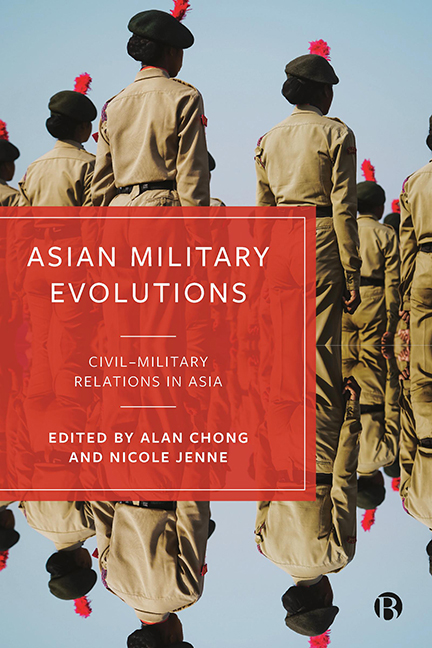Book contents
15 - Defence Diplomacy and Civil–Military Relations: The Case of Bangladesh
Published online by Cambridge University Press: 18 January 2024
Summary
In late May 2020, George Floyd, a middle-aged African American was killed by police in Minneapolis, Minnesota, during an arrest for an alleged misdemeanour. The resulting outcry against the killing convulsed the United States. Its impact was felt across a world already numbed by the death and mayhem caused by the COVID-19 pandemic. While protestors made their rage felt on the streets, President Donald J. Trump threatened to use the military to bring order back to the cities. The situation took a new turn when on 1 June, the President accompanied by the US’s top military officer, Chairman of Joint Chiefs of Staff Mark Milley in combat uniform, walked over for a photo opportunity in front of Washington DC’s St John’s Episcopal Church through an area that had just been violently cleared of demonstrators. The resulting furore led General Milley to issue a remarkable apology, admitting his presence had raised an uncomfortable perception of the US armed forces getting involved in domestic politics. While the apology put an end to the immediate uproar, the event raised questions about the state of civil–military relations in an established democracy like the US. Writing in Foreign Policy, one commentator forewarned that problems in civil–military relations in the country have been simmering for decades and, if the present trend of relying on the military to take sides to protect democracy continues unchecked, the future of US democracy will be imperilled (Golby, 2020).
The US example is interesting for it questions the state of civil–military relations in a country where democracy has been a stable feature for centuries and, in spite of challenges, is considered as a ‘shackled Leviathan’ (Acemoglu and Robinson, 2019, pp 24–7). In this connection, one may wonder about the state of civil–military relations in countries where democracy is more of a recent phenomenon and has faced many bumps on the road.
Bangladesh, the eighth most populous country in the world, and also the youngest nation-state in South Asia, is one such country.
- Type
- Chapter
- Information
- Asian Military EvolutionsCivil-Military Relations in Asia, pp. 320 - 339Publisher: Bristol University PressPrint publication year: 2023



